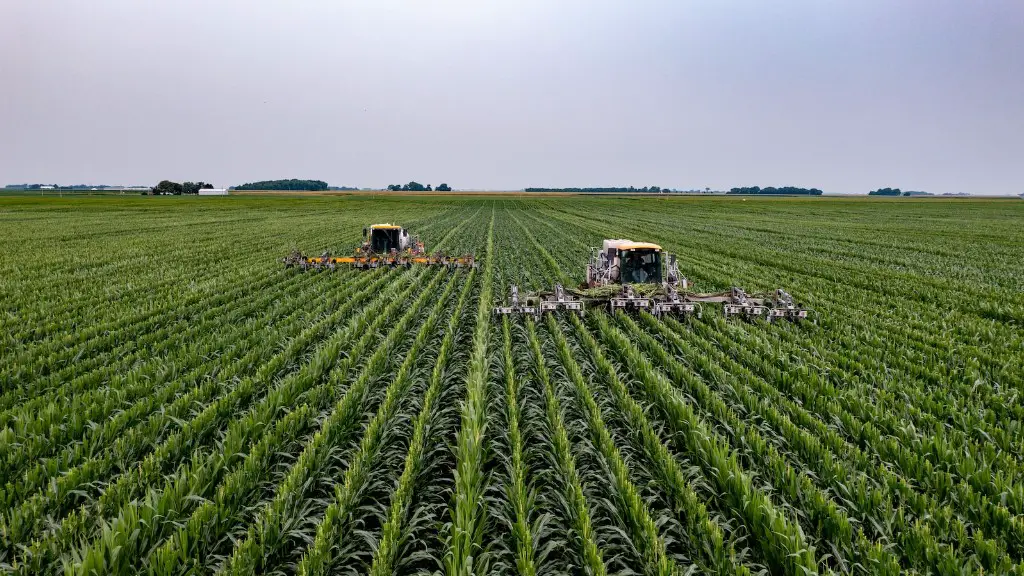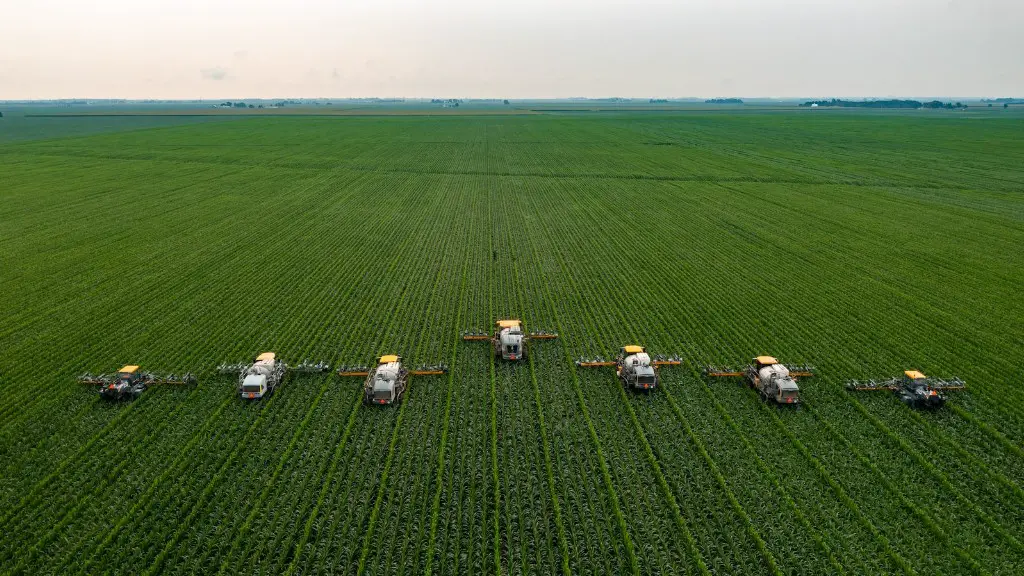Farm inventory relates to the agricultural products, equipment and machinery a farmer has on hand. It is an important factor in measuring the overall financial health of a farm. Properly managing farm inventory can help ensure resources are adequately available for operations and maintain profitability. Not only does farm inventory help in planning for the current operations, but it can also be leveraged for credit activities and tax preparation.
Farm inventory plays an integral role in making responsible financial decisions and should be regularly monitored. An accurate inventory helps to determine the fiscal condition of a farm and informs buyers and sellers on their potential liabilities and risk. By recording items such as seeds, fertilizer, veterinary supplies, tools, machinery, and other necessary equipment, farmers can be confident in their ability to plan and operate a successful farming business.
Farm inventories should include all of the items that are used in the farming operation. These could include animals, feed, bedding, crop tools, pesticides, and other things necessary for farm use. The inventory should also include items that are purchased for sale, such as hay, eggs, vegetables, and fruits. Having a complete inventory helps the farmer keep track of how much stock is available, how much has been used, and what is currently for sale.
Maintaining a detailed farm inventory is essential for any farming business. Keeping accurate records gives greater insights into the condition of current and future resources and allows for sound management decisions. For example, proper inventory management can help a farmer more accurately anticipate future needs and prepare for potential changes in production cost and sales prices.
In addition to keeping track of farming materials, farm inventory also helps protect against theft and insurance claims. An accurate inventory minimizes the chance of losses and helps identify the full value of any theft or damaged materials. In the event of an insurance claim, an up-to-date inventory can provide valuable information and support to the claim.
Managing Farm Inventory
The goal of proper farm inventory management is to minimize waste, maximize efficiency and create accurate records. The process of organizing and updating the inventory will vary depending on the type of farm and a farmer’s individual needs. Generally, it involves categorizing items and tracking them accurately by date and quantity, as well as cost and revenue associated with each item.
The farm inventory record should be updated regularly to account for any changes in the operation and include data on purchases, sales, transfers, cancellations and other events. Farm accounting software can help to streamline this process and make it easier for the farmer to organize and review critical data. In addition, regular audits should be conducted to ensure accuracy.
The success of a farm business is dependent on having a proper inventory system and monitoring it on a regular basis. This can help to ensure that the right materials are on hand and readily available, while also avoiding costly errors or confusion. Accurate and up-to-date inventory helps farmers remain informed and prepared for any situation.
Productivity and Efficiency
Having accurate farm inventory management helps to keep production running smoothly and efficiently. With accurate tracking of materials, farmers can better plan around shortages or delays and know when to reorder or restock. This allows them to keep production on schedule and manage resources more effectively. Moreover, an accurate inventory can help identify any gaps or excess in resources, so that a farmer can determine the best way to use the available materials for production.
In addition, an inventory system can be used to monitor costs. Accurate records will help ensure that costs are tracked and reported accurately, making it easy to identify any issues so that remedies can be put in place. By monitoring costs, farmers can ensure that their operation is running as efficiently as possible.
Farmers can also benefit from an inventory system when it comes to quality control. Accounting for the materials that are used in the farming operation helps farmers to spot any quality control issues quickly and make the required adjustments. With a comprehensive inventory management system, farmers can be sure that they are using their resources wisely and producing the highest quality product.
File Management
An effective farm inventory system involves keeping accurate records and ensuring those records are well organized. This can help ensure that the information is accessible and data can be retrieved quickly. By organizing records, farmers can easily retrieve the information they need when needed and avoid any costly errors.
Moreover, an organized inventory system also allows multiple users to access the data easily. By allowing others to view and access records, farmers can better collaborate with others or allow decision-makers better insights into their operations. This helps enable more informed decision-making and reduces the chance of errors.
In addition, organized records allow audit trails. This helps to protect the integrity of the data, while helping to safeguard against any fraudulent activity or inaccurate information. Knowing the data is secure helps to make farmers more confident in their numbers and able to make sound decisions.
Data Analysis
An important part of any inventory system is the ability to analyze the data effectively. By having an efficient system for tracking and accounting for inventory, farmers can identify trends, spot inefficiencies and test various scenarios. This helps them to plan for the future and reshape their operation to ensure greater success. Having access to the right data helps farmers make better decisions and maximize the efficiency of their operation.
Data analysis can also be used for forecasting. Farmers can use their past data to anticipate future needs and take advantage of any potential opportunities. By keeping an accurate record of the farm inventory, farmers can better forecast potential changes in prices, sales or other impacts, allowing them to prepare effectively.
Finally, farm inventory data can also be used to measure performance. This includes tracking inventory, production costs, quality metrics, resource utilization and other important metrics. Utilizing this data can help farmers identify areas of improvement and determine the best ways to prioritize resources. This can help to address any challenges and help farmers keep their operations running as smoothly as possible.
Conclusion
Farm inventory is an important factor in the success of a farming business. Having an up-to-date, accurate record of all of the items used in the operation is essential for a farmer’s financial health. Proper management of the inventory can help a farmer anticipate future needs, plan for changes in production cost, and gain insights into their operation. An efficient inventory system that allows for data analysis and file management is essential for farmers to run a profitable operation.




